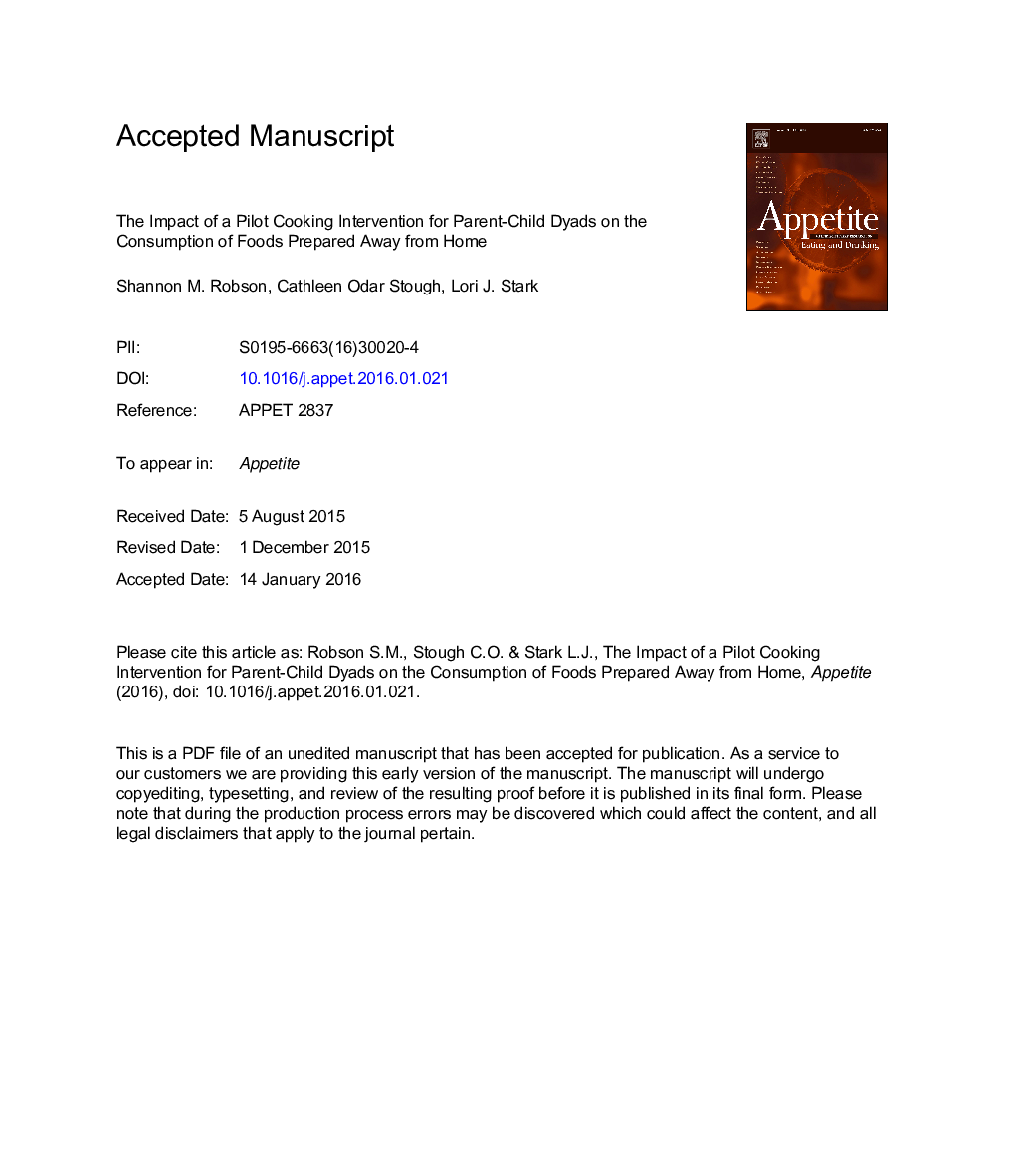| Article ID | Journal | Published Year | Pages | File Type |
|---|---|---|---|---|
| 7307789 | Appetite | 2016 | 33 Pages |
Abstract
A pre-post design to evaluate a 10-week cooking intervention on reducing eating dinner away from home, energy intake, and improving diet quality was implemented. The intervention was delivered at an instructional kitchen on a university campus and assessments were completed at a children's academic medical center. Subjects included six parent-child dyads whom reported eating dinner away from home â¥3 times/week and in which the parent was overweight based on their body mass index (BMI) of â¥25 kg/m2. Parents were a mean age of 34.7 (SD = 3.9) years, and children were a mean age of 8.7 (SD = 2.0) years. Two-thirds of parents self-identified themselves and their children as White. Results showed the proportion of dinners consumed by parent-child dyads away from home significantly decreased (F (1,161) = 16.1, p < 0.05) from 56% at baseline to 25% at post-treatment. Dyad cholesterol intake at dinner also significantly decreased over time; however, changes in energy intake, total fat, saturated fat, and sodium at dinner were not significant. A large effect size was found for changes in parent ratings of enjoyment of cooking between baseline and post-treatment. A cooking intervention that involves parent-child dyads and incorporates behavior management strategies and nutrition education may be an innovative obesity prevention intervention.
Keywords
Related Topics
Life Sciences
Agricultural and Biological Sciences
Food Science
Authors
Shannon M. Robson, Cathleen Odar Stough, Lori J. Stark,
